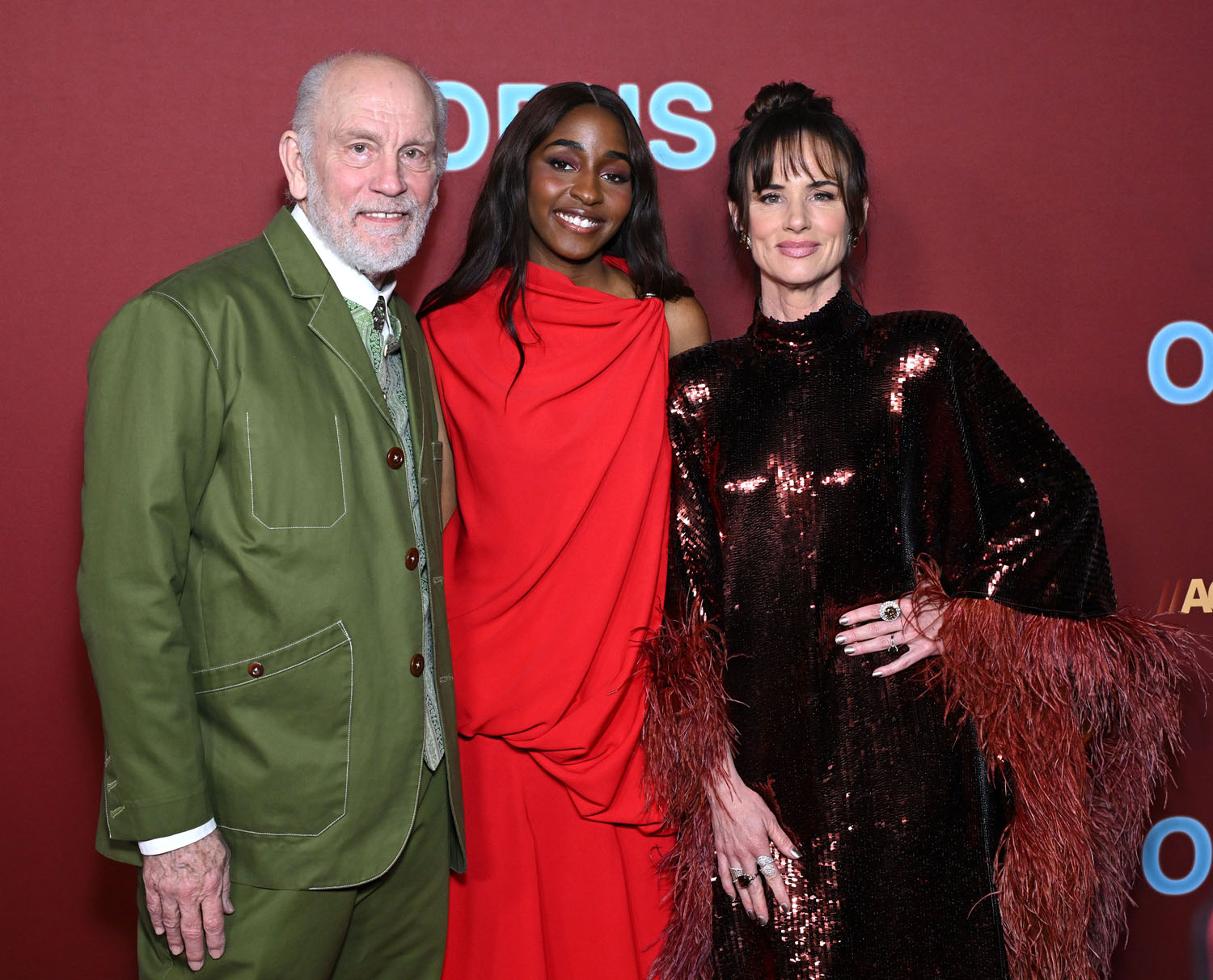Ayo Edebiri and John Malkovich in Opus



Celebrity culture and the cult-like adoration mega-stars engender are ripe targets for satire, and in Opus, his feature directorial debut, filmmaker Mark Anthony Green takes aim, only to miss the mark. Starring Ayo Edebiri as Ariel Ecton, a music journalist struggling to get out from under the toxic influence of Stan, her self-absorbed editor, played with an acidic “I miss the days of wine and cocaine” edge by Murray Bartlett, Opus has many thoughts and ideas, none of them particularly well organized. Genre elements are picked up and discarded, and most characters are cardboard cutout impressions of people. If it weren’t for Edebiri’s natural charm and John Malkovich’s total dedication to a batsh-t performance, Opus would have nothing going for it.
It starts out promisingly, though. Alfred Moretti is one of the biggest pop stars in the world, but no one has seen him in years, and it’s been almost three decades since he released new music. But hark, new music is imminent, and to celebrate Moretti’s return to the world, he invites an exclusive cadre of guests to his remote New Mexico compound for a listening party. Among the group are Ariel and Stan, as well as TV personality Clara Armstrong (Juliette Lewis), influencer Emily (Stephanie Suganami), and music critic Bill Lotto (Mark Sivertsen). At the compound, the guests are assigned personal docents; Belle (Amber Midthunder) follows Ariel on her morning jog and sits outside her door all night like the world’s creepiest bellhop.
From the moment they arrive, the vibes are bad, but only Ariel clocks it. Everyone else is just so grateful to be part of the experience, to be on the exclusive inside of Moretti’s return to music, they overlook immediate and obvious red flags. It’s a slick critique of access journalism, showing how people check their ethics at the door in the name of exclusivity. There are also some good shots taken at managerial incompetence and toxicity, as Stan plans to write the big review of Moretti’s album but assigns Ariel the less glamorous task of notetaking during their stay. When Ariel proposes a “companion piece” to his review to focus on the strange cult-like sect to which Moretti belongs, Stan denies her, blithely stating he will write anything of importance.
John Malkovich is clearly having the time of his life playing Moretti, a diva who never stop diva’ing even as he withdrew from public life. Niles Rodgers and The-Dream collaborated on original music for the film, which Malkovich performs with gusto (the Nineties-style dance track “Dina, Simone” is ludicrous but it got stuck in my head for days). Morettis is at once an overindulged celebrity, infantilized by wealth and adoration, and a dangerous guru, using the power celebrity gives him to grow the “Levelists”, a cult that wants to bring about a creative-based world order. This is Malkovich at his most eccentric, recalling his performance in Being John Malkovich for his sheer commitment to the bit. He never wavers, no matter how thin and/or absurd the material around him.
Edebiri is similarly committed, and the two of them almost manage to make Opus work between them. Green is a good director of actors, he gets good performances from his cast, unfortunately, beyond that initial takedown of access journalism, Opus doesn’t have any coherent thoughts. There’s just a little too much going on at all times. The film has tones of horror comedy and social thrillers—and some top-notch body horror, including a wig pull sound effect I never want to hear again—but the film’s theme is confused. It’s a celebrity satire that veers into a dark comedy about a cult that turns into a social thriller about power and politics…maybe? There’s also a thread at the end about true crime and how people benefit from the retelling of horrible events, but I’m not convinced that is intentional, the film is so confused by that point.
There are some good performances, especially Edebiri and Malkovich, and some good bits in Opus, but overall, the film is shambolic and messy. At 104 minutes, the film is not overlong, but I can’t help but wish it was more focused, that Green’s observations were more specific and less numerous. The film is at its best when Green is focused on the relationship between celebrity and media, but there is too much other stuff clogging the story for that satire to drive the film. Celebrity and fan culture and fawning journalism are all super easy targets, but Opus misses every one because it’s doing too much. Despite a promising filmmaker and a very talented cast, Opus’s best bit is the deliberately nonsensical “Dina, Simone”.
DINA! SIMONE!
Opus will play exclusively in theaters from March 14, 2025.

